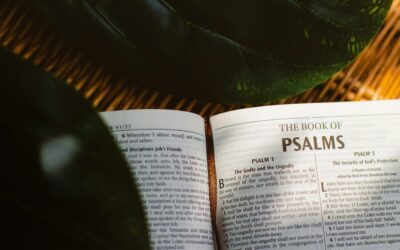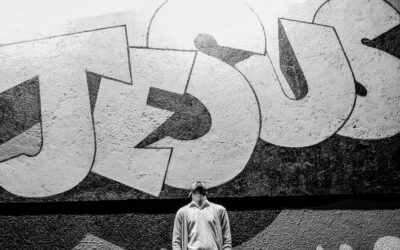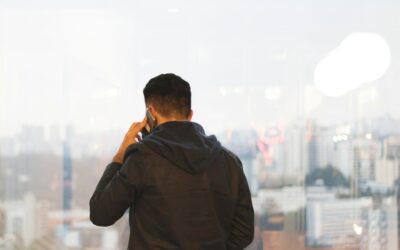The entire country seems to be in outrage right now- either in support of protests/riots or in anger about destruction of property and looting and/or racial bias against people of color. People are being divided and friendships and families are being torn apart.
I hear a lot of my friends saying things like, “I wish I could explain what it is like to be a person of color.” So since I’ve never even had to think about what it means to be white, I decided to learn more about it. I was hoping it would help me understand what a person of color may face that I am privileged not to face. I found a really insightful book by a Christian writer named Daniel Hill called “White Awake” which tells of his struggles trying to start multicultural ministries, and shares many of the lessons he has learned along the way.
The first truth I had to accept in response to this book is that “colorblindness” is not an acceptable response to cultural differences. Growing up in the 1980s/1990s we were all taught in school to be “color blind” and not see race, and it turns out this is a terrible approach. It makes things awkward – “the elephant in the room” – when you ignore what is plainly in front of you. Instead, we should value everyone for who they are, and use cultural differences as a way to better understand one another.
Here is a quote from “White Awake”- “Though you can find the presence of colorblind ideology in all sectors of society, a uniquely powerful version is circulating in the Christian context. The ideology of Christian colorblindness is fortified by theological truths that are unfortunately misapplied to cultural identity. The short form usually sounds something like this: ‘God did not create multiple races; there is just one race: humankind.’ As human beings, we share more in common than difference. We have all sinned, we are all in need of redemption, we are all equals at the foot of the cross, and through faith we are all one in Christ.”
Every part of that last sentence is theologically accurate; sin, salvation, and redemption are equally applicable to people of every race and creed. The problem is that those same truths are incorrectly applied to cultural identity, leaving us with a dangerous form of colorblindness…
Christian colorblindness is dangerous for many reasons, but the power of sin is at the top of the list. The system of race that we’ve created in America is fraught with sin, and it has played a powerful role in shaping the sense of identity of every human being who has lived here. Therefore it would be naive for devoted followers of Jesus to believe they can pursue the transformation of identity in Christ without also acknowledging the power of sin as evidenced by the impact of race. Our old self has been profoundly shaped by race, and we can’t grow into the new and redeemed self without naming the presence of that sin, confessing the ways it has impacted us, and doing all we can to break free of its former power. That’s why I believe that choosing to remain colorblind is willful ignorance.
In America today, the idea of being “white” is easy to see as being “normal.” “White Awake” teaches that originally the settlers in America were considered separate groups – Irish, English, German, Dutch, etc. rather than “white people” – until those profiting from the slave trade wanted a way to justify slavery of Africans. Hence “white” was applied to everyone with lighter skin, to unify them against people with darker skin. Anything that is from a different ethnicity than “white” is automatically considered “different” and, less overtly, considered “less than.” If your core identity as a white person is “normal” how can you understand what it is like to be considered “different” and “less than” in every way? When you can go for a jog, go birdwatching, ask for help after a car crash, walk to the corner store, ask the police for assistance, read a book in your car, etc. in peace and safety, remember that in recent history brothers and sisters of color were killed doing these tasks (and many others). If you are pulled over by the police and your biggest fear is getting a ticket, how can you really know what it’s like to be someone else who has a legitimate fear of unprovoked escalation?
Let’s start by accepting that we are all different and have different challenges and struggles. We need to treat others as people who have a “story” that we haven’t heard yet, rather than treating them only in response to how they are acting when under pressure. I used this approach in customer service for several years, and without fail the people that started off yelling at me would end up apologizing and explaining their “story” about why they were so angry or upset to begin with. Did you know that heartbreak can look like anger to a stranger?

Instead of passing judgment, let’s try to better understand who our brothers and sisters are that have never felt loved and accepted by their country. If you consider yourself a patriot, this should break your heart. Let’s remind our loved ones that our true citizenship is in heaven, but it’s not heaven yet. We are in a challenging world where we are called to “serve one another humbly in love. For the entire law is fulfilled in keeping this one command: “Love your neighbor as yourself” (Gal. 5:13-14). If you were unlawfully killed, in broad daylight, by those who are supposed to protect and serve you, wouldn’t you want someone – anyone – inside or outside your “group” – to do something about it?
In a speech at Stanford University in 1967, Dr. Martin Luther King Jr. addressed civil unrest in words that speak true today: “Certain conditions continue to exist in our society, which must be condemned as vigorously as we condemn riots. But in the final analysis, a riot is the language of the unheard. And what is it that America has failed to hear? It has failed to hear that the plight of the Negro poor has worsened over the last few years. It has failed to hear that the promises of freedom and justice have not been met. And it has failed to hear that large segments of white society are more concerned about tranquility and the status quo than about justice, equality and humanity.”
As a Christian, we serve as God’s hands and feet on earth. Right or wrong, people will determine how strong your faith is by how quickly you take action in the face of oppression and abuse against those who are not being heard. This is why “colorblindness” will not work. If we stand by and do nothing, we are not only missing what we are called to do, but we are also helping to keep racism alive. As Dr. Martin Luther King Jr. has stated, “to ignore evil is to become accomplice to it.” We are called to listen to, understand, and love the people around us. Day by day we need to look for “the one” – the person that we can pray for and serve – so that we can bring true healing to our nation. This has to be done through love. “Anyone who loves God must also love their brother and sister” (1 John 4:21).



